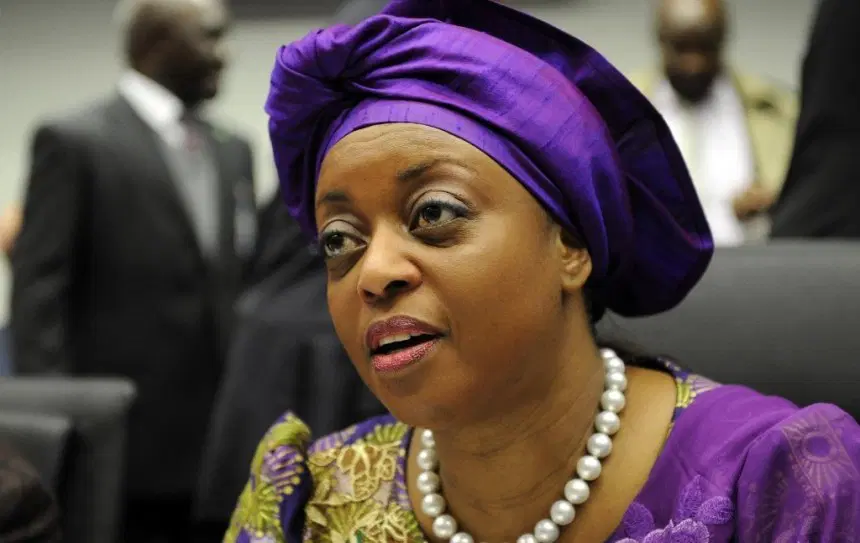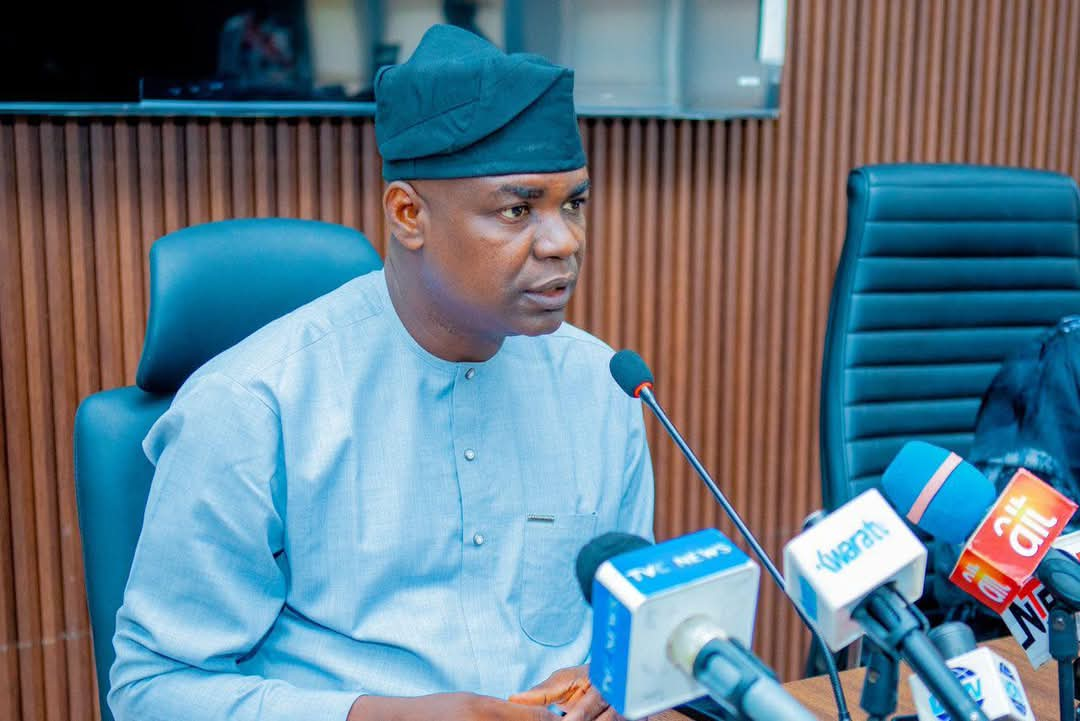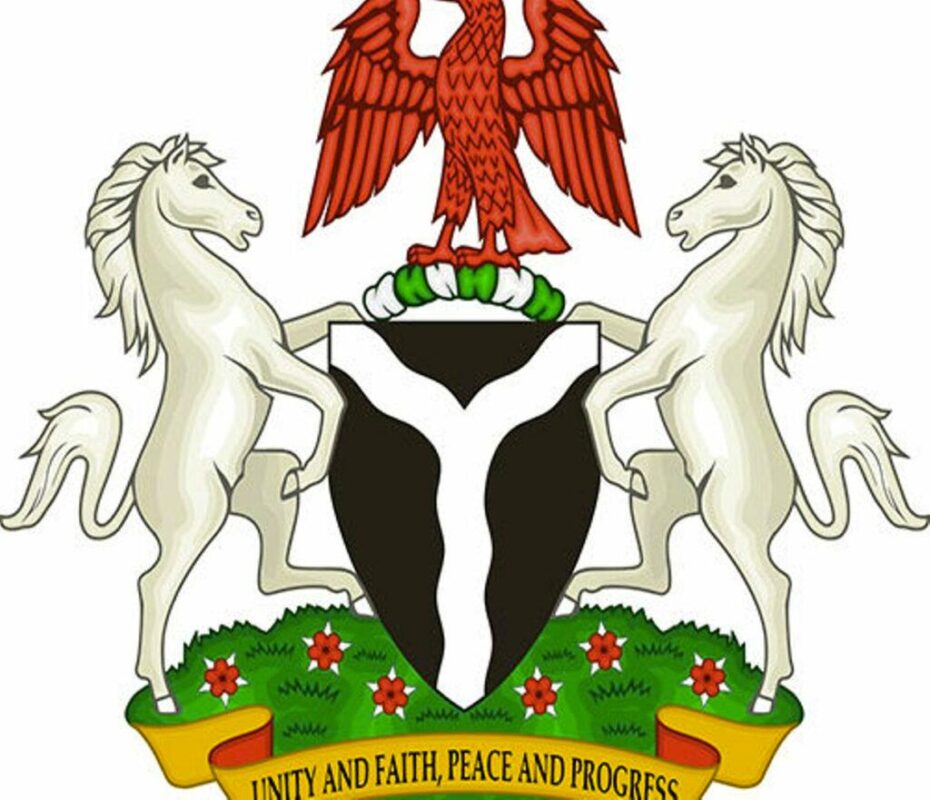Mrs. Diezani Alison-Madueke, the former minister of petroleum resources, has petitioned the Federal High Court in Abuja to prevent the Economic and Financial Crimes Commission, or EFCC, from selling all of the properties that were taken from her. In the lawsuit she brought through a group of attorneys headed by Chief Mike Ozekhome, SAN, the former minister also asked the court to issue an order compelling the anti-graft agency to collect from anybody (natural or corporate) that it had sold any of the properties to.

Mrs. Diezani Alison-Madueke
The former petroleum minister told the court that the EFCC had, in violation of her fundamental right to a fair hearing, and in accordance with a notice it issued in 2023, begun a public sale by auction of assets connected to her.
The applicant claimed that the anti-graft agency had obtained forfeiture orders against her by hiding facts and making false statements.
“The courts were misled into issuing the final forfeiture order against the applicant on the basis of the suppression or non-disclosure of material facts, and in many cases, the final forfeiture orders were made against properties that affected the applicant’s interest.”
“As a void order is as good as if it was never made at all, the court has the power to set aside the same ex-debito justitiae because the numerous applications upon which the courts made the final order of forfeiture against the applicant were obtained upon gross misstatements, misrepresentations, non-disclosure, concealment, and suppression of material facts,” she stated. The troubled former minister claimed that the forfeiture orders were issued against her without using her constitutional right to a fair trial and that the courts that made them lacked the necessary authority.
“As a void order is as good as if it was never made at all, the court has the power to set aside the same ex-debito justitiae because the numerous applications upon which the courts made the final order of forfeiture against the applicant were obtained upon gross misstatements, misrepresentations, non-disclosure, concealment, and suppression of material facts,” she stated. The troubled former minister claimed that the forfeiture orders were issued against her without using her constitutional right to a fair trial and that the courts that made them lacked the necessary authority.
The applicant asserted that the EFCC knew she was out of Nigeria at all relevant times since 2015, when she departed to receive medical care, and that she was never served with pertinent court procedures in any of the hearings that resulted in the orders for the final confiscation of her assets.
“Because she was not in Nigeria at all material times relevant to this suit, the applicant did not have any access to newspapers circulating within Nigeria during this period,” her attorney stated.
“To date, the Applicant has not been convicted of any unlawful activities to warrant the forfeiture of her properties and assets,” she told the court, despite the EFCC’s claim that the seized properties were the profits of alleged unlawful activity.
“The courts granted the order of final forfeiture on minimum proof based on the civil standards of preponderance of evidence or balance of probability, instead of the strict proof applicable in criminal trials or civil proceedings where there is an allegation of crime, in a matter that is said to flow from criminal activities and which are criminal in nature, and without any conviction of the Applicant.”An action can only be deemed unlawful by a court of law, and the applicant’s alleged behavior was not found to be unlawful by any such ruling.
“In this case, the Respondent’s (EFCC) simple claim that the Applicant’s act or action constituted unlawful activities will not be sufficient.”
The applicant informed the court that she was now facing three lawsuits against the EFCC in Lagos, arguing that “no sale can validly take place as such would be rendered nugatory since the forfeiture orders are being challenged.”
In the meantime, the EFCC challenged its jurisdiction in a counter-affidavit it filed in response to the lawsuit.
The anti-graft agency informed the court in an affidavit provided by one of its investigators, Oyakhilome Ekienabor, that after a thorough investigation into the applicant’s actions during her time as a public servant, criminal charges were brought against her in a number of courts.
It informed the court that two instances of such cases were a suit filed in November 2018 under the filing number FHC/ABJ/CR/208/2018 and another charge filed on July 1, 2017, before a High Court in Adamawa State under the filing number HC/ADYL/56c/2017. In accordance with the Federal High Court’s final forfeiture orders issued by Justice C.A. Obiozor on July 9, 2019, and another judgment issued by Justice I. N. Oweibo on September 10, 2019, the EFCC insisted that the sale of properties that had previously belonged to the former minister was carried out.
The commission informed the court that it had published newspaper ads asking anyone with an interest in the properties to provide justification before the assets were considered forfeited.
“The final forfeiture orders that governed the properties’ sale are still in effect and haven’t been overturned. Due process of law was followed in the disposition of the forfeited properties,” the EFCC continued.
Mr. Godwin Iyibor, who represented the applicant during yesterday’s resumed proceedings, asked for more time to submit his answer to the EFCC’s counter-affidavit, which he claimed was delivered to him on March 14.
The EFCC’s representative, Mr. Divine Okoro, informed the court that the commission ran into some issues that prevented it from filing the procedure in the 14 days that were given to it.
As a result, the subject was postponed to March 27 for a definitive hearing by Justice Inyang Ekwo. Despite warning that the court would no longer accept any excuses from the parties, the trial judge pointed out that the matter had been ongoing since 2023.
As you may remember, the former minister had previously sued the EFCC for N100 billion in defamation, claiming that the agency had written and supported multiple publications that depicted her as a treasury looter.
She claimed that the aforementioned defamatory publications exposed her to “public ridicule, odium, contempt, derision, and obloquy” in the lawsuit filed under the filing number CV/6273/2023.




